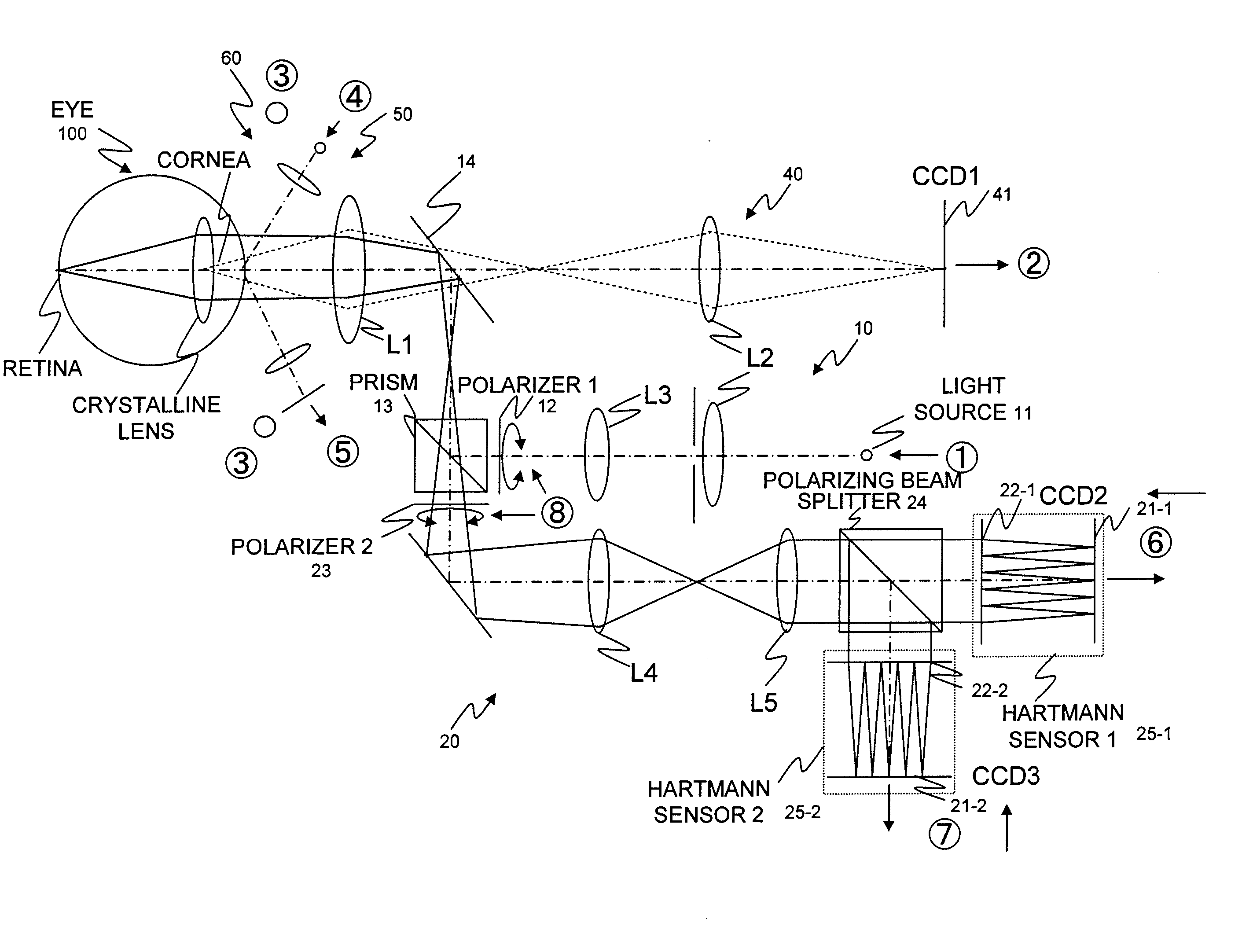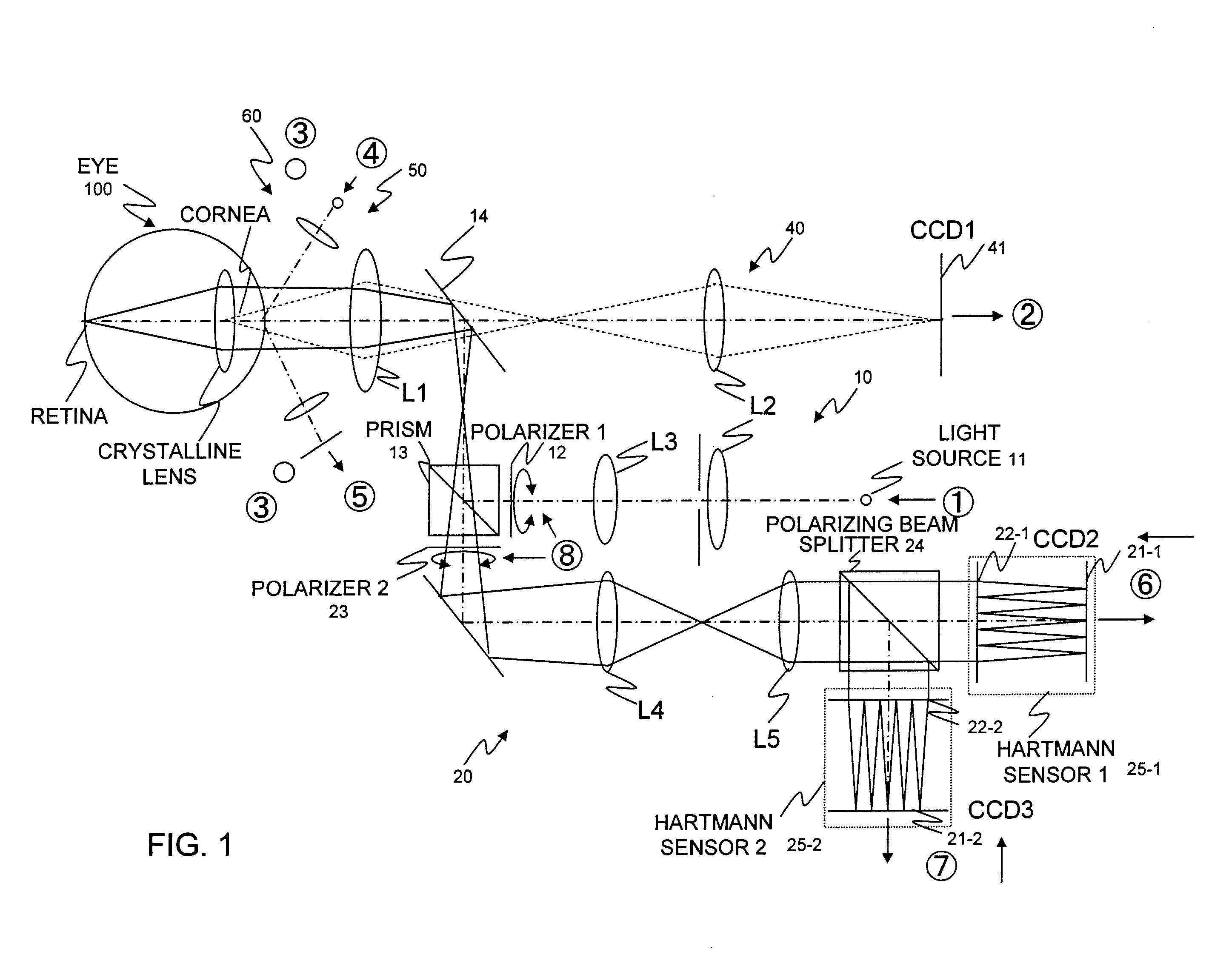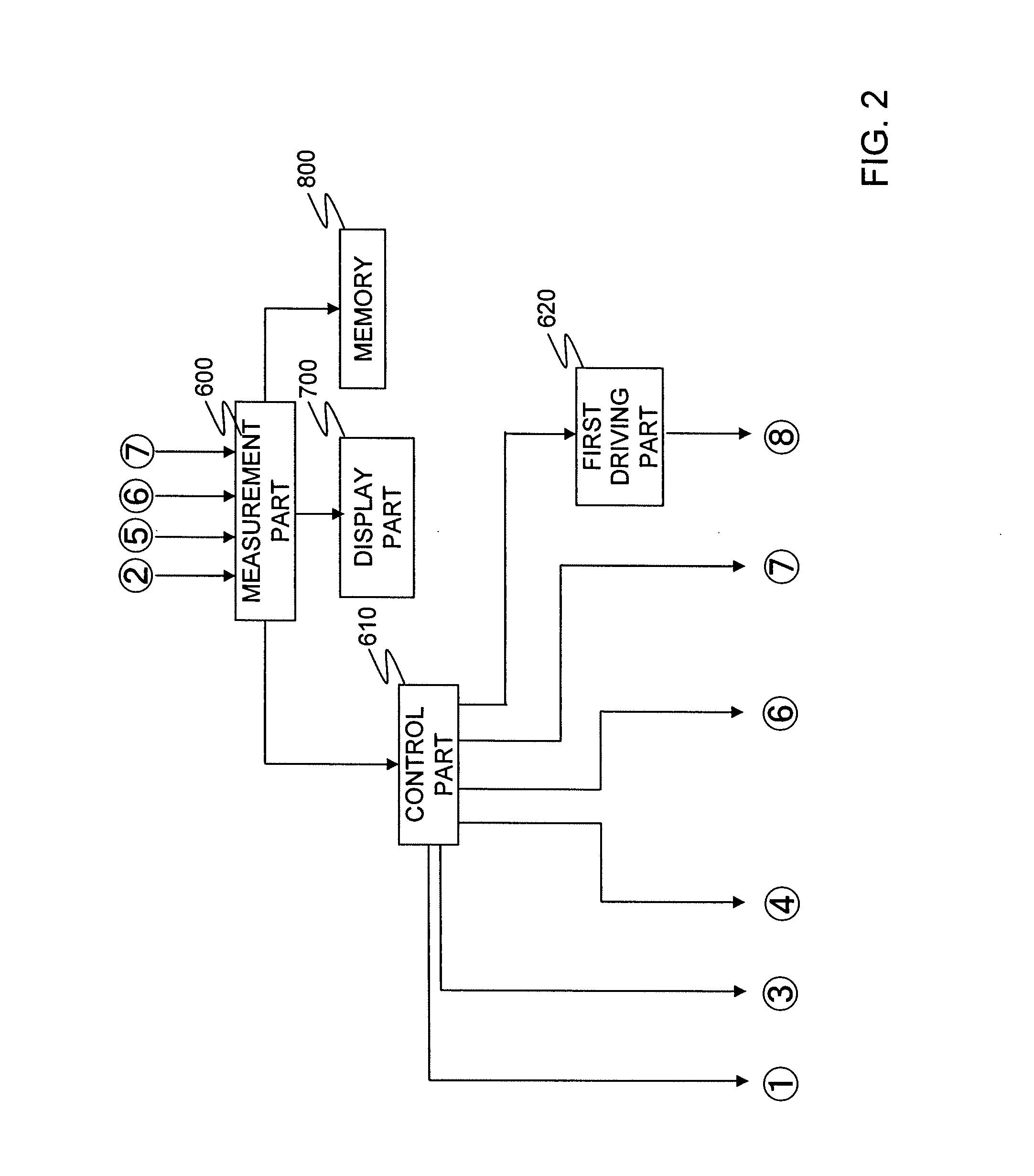Ophthalmologic measuring apparatus
a technology of ophthalmologic and measuring equipment, applied in the field of ophthalmologic measuring equipment, can solve the problems of time-dependent change of tear fluid on the cornea, limit in performance, and aberration change,
- Summary
- Abstract
- Description
- Claims
- Application Information
AI Technical Summary
Benefits of technology
Problems solved by technology
Method used
Image
Examples
Embodiment Construction
1. APPARATUS STRUCTURE
1.1 Optical System
[0036]FIG. 1 is an optical arrangement view of an ophthalmologic measuring apparatus.
[0037]The apparatus includes a first illuminating optical system 10, a first light source part 11, a first light receiving system 20, an anterior eye observation part 40, a first adjustment optical part 50, and an anterior eye illumination part 60. Incidentally, with respect to a subject eye 100, a cornea (anterior eye part), a crystalline lens and a retina (ocular fundus) are shown.
[0038]The first light source part 11 emits light at a specified timing, and emits a light flux of a first wavelength. It is desirable that the first light source part 11 has high spatial coherence and not high temporal coherence. Here, as an example, an SLD (super luminescence diode) is adopted, and a point light source with high brightness can be obtained. Incidentally, the first light source part 11 is not limited to the SLD, and even if both the spatial and temporal coherences a...
PUM
 Login to View More
Login to View More Abstract
Description
Claims
Application Information
 Login to View More
Login to View More - R&D
- Intellectual Property
- Life Sciences
- Materials
- Tech Scout
- Unparalleled Data Quality
- Higher Quality Content
- 60% Fewer Hallucinations
Browse by: Latest US Patents, China's latest patents, Technical Efficacy Thesaurus, Application Domain, Technology Topic, Popular Technical Reports.
© 2025 PatSnap. All rights reserved.Legal|Privacy policy|Modern Slavery Act Transparency Statement|Sitemap|About US| Contact US: help@patsnap.com



